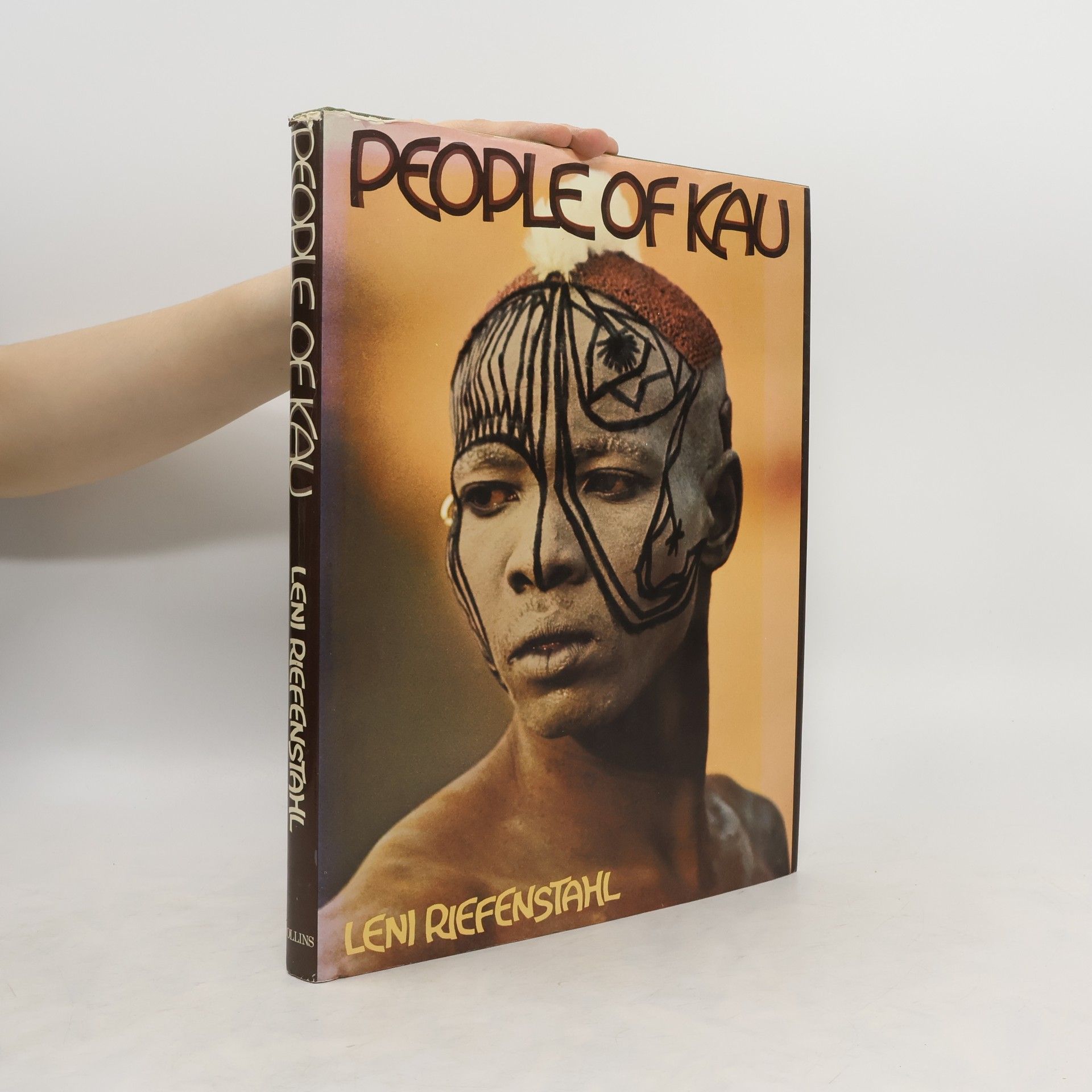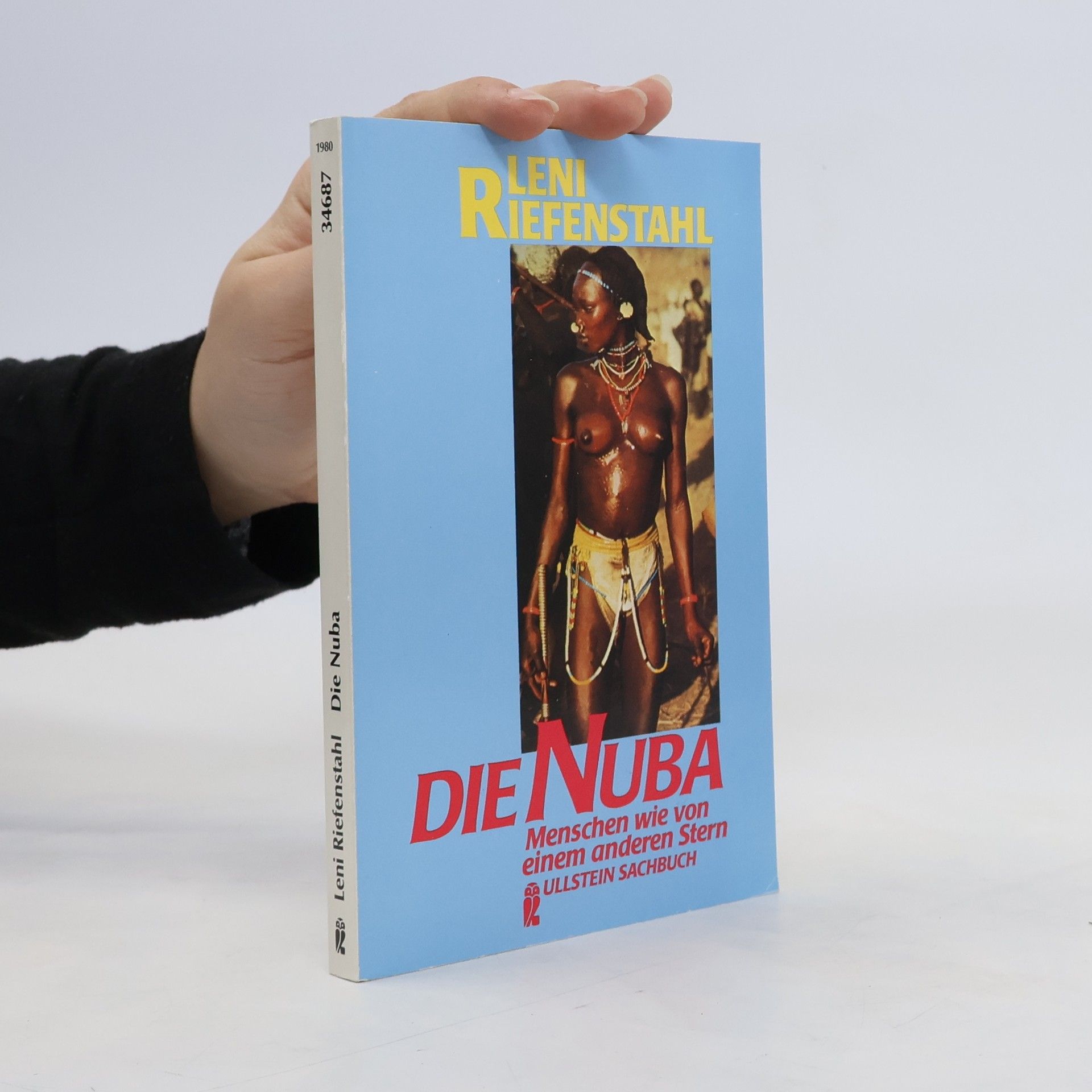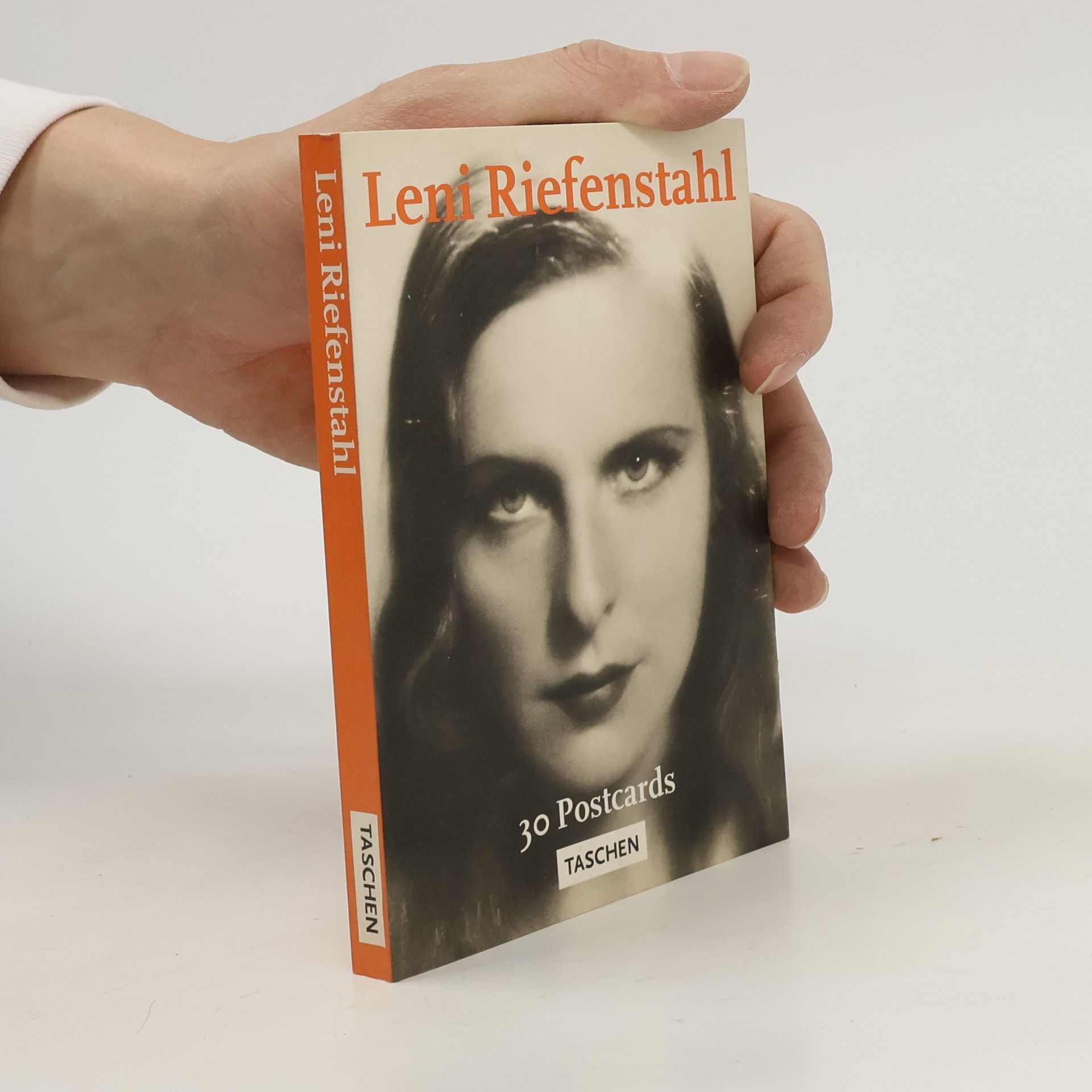Leni Riefenstahl Libri
Leni Riefenstahl è stata una regista cinematografica, attrice e ballerina tedesca, ampiamente nota per la sua estetica e le sue innovazioni nel campo cinematografico. Le sue opere degli anni '30, sebbene controverse per la loro natura propagandistica, sono spesso citate come esempi di lavoro cinematografico eccezionale. Riefenstahl è stata una pioniera delle tecniche cinematografiche e fotografiche, con i suoi documentari che utilizzavano gru, binari di trascinamento e più telecamere contemporaneamente. Dopo la Seconda Guerra Mondiale, la sua carriera si è spostata verso la fotografia, concentrandosi su soggetti come le tribù Nuba e la vita sottomarina.







Photographs of the Nuba people of Kau portray the traditions--including knife fights, dances of love, and body painting--of a primitive tribe whose existence is threatened by the advance of industrial civilization
Leni Riefenstahl's Africa
- 232pagine
- 9 ore di lettura
If Leni Riefenstahl had done nothing but visit Africa and bring back her photographs, her place in history would be secure." -Kevin Brownlow, from the introduction When she was in her early sixties, Leni Riefenstahl began traveling frequently to the African continent, where she has worked on various film and photography projects over the last half century. Her favorite destination was in Sudan, where she lived with and photographed the Nuba tribespeople, learning their language and becoming their friend. The Nuba were a loving and peaceful people who welcomed Riefenstahl as one of their own. Her images of the Nuba, as well as of the Dinka, Shilluk, Masai, and other tribes, are gathered in this monumental book. Riefenstahl remembers her experiences in Africa as the happiest moments in her life. Her beautiful, skilled photographs represent a landmark in the extraordinary career of the 20th century's most unforgettable artistic pioneer. * Interview by Kevin Brownlow * Extensive bibliography and biography section
On August 1, 1936, in Berlin, to the sound of Hitler's opening words and hundreds of doves set aflight, the Summer Olympic Games began. Here were sixteen days of heroism, aesthetic and athletic perfection, and a triumph of determination and will - not least by the legendary artist Leni Riefenstahl. The filmmaker and photographer was commissioned to document these spectacular games for posterity. Her film Olympia is one of the results of this experiment. The other is this volume, Olympia, a startling collection of images of athletes, of sport, and of intense drive resulting from these games. Riefenstahl utilized innovative and ground-breaking camera angles, techniques, and styles in order to create her vision of the Olympics. Her stark realism is revealed in these shots of strength and determination. The artist presents divers, swimmers, sprinters, jumpers, vaulters, and others as specimen, the ultimate practitioners of their art forms, and by these efforts, the portraits of these men and women reach a zenith of Riefenstahl's own art. Leni Riefenstahl's visual genius is fully evident in this remarkable collection of black and white photographs. Through her lens, we view the epitome of the beauty of athleticism, the excitement of competition, and the pressure of the political atmosphere. Olympia is a remarkable record of human idealism, Olympic excellence, and photographic skill.
Wonders under water
- 218pagine
- 8 ore di lettura
Ce livre riche en images et textes en anglais, allemand et français documente les "cinq vies" de Leni Riefenstahl, danseuse, actrice, réalisatrice, photographe et plongeuse. Bien qu'elle ait été discréditée pour ses films de propagande nazie, Riefenstahl reste une réalisatrice et photographe de renom, notamment pour ses œuvres sur les Nuba au Soudan.
"Dieses Bild veränderte mein Leben!", erinnert sich Leni Riefenstahl, nachdem sie auf einem Foto des Fotografen George Rodger das erste Mal die stolzen Nuba-Ringkämpfer sah. Nicht einmal Missionare hatten es bisher geschafft, das Vertrauen des geheimnisvollen Stammes zu gewinnen. Leni Riefenstahl dokumentiert auf einzigartigen Bildern das Leben des Stammes, sie veranschaulicht Bräuche wie das Tätowieren oder den Messerkampf und erläutert in ihren Texten die Lebensweise in der Natur. Vor allem jedoch zeigt sie die unvergleichliche Anmut und Einfachheit der Menschen - eine Welt wie sie unserer nicht ferner sein könnte



